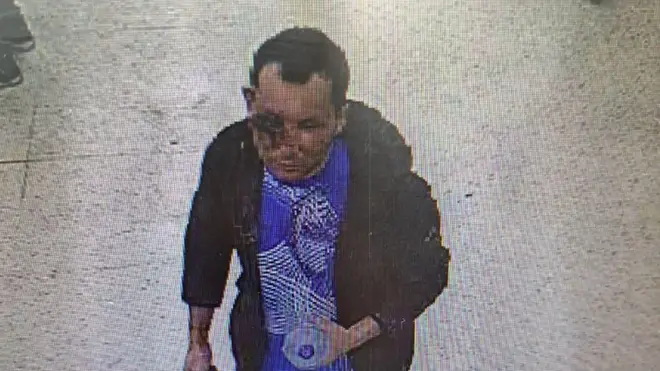
Vanessa Feltz 3pm - 6pm
31 March 2024, 08:06

Chemical attacker Abdul Ezedi was buried under a 'false name' after a charity raised £6,000 for his funeral, it has been revealed.
Ezedi, a convicted sex offender, died when he fell into the Thames after attacking a mother and her children in Clapham, south London, with an alkali chemical substance in January.
Having left Afghanistan in 2016, Ezedi came to the UK and was granted asylum after converting to Christianity. But despite this, he was buried in an Islamic ceremony.
The funeral was paid for by a the charity Muslim Burial Fund (MBF), which raised more then £6,000 for the funeral.
Ezedi was buried under a fake name, which was 'Abdul Wahed', the Mail on Sunday reports.
It comes after it emerged that Ezedi was granted asylum by a judge who accepted he was a Christian convert despite concerns the sex offender was a liar.
A raft of previously confidential documents disclose for the first time how the man police believe carried out a harrowing chemical attack earlier this year had been allowed to stay in the UK even though he had a criminal conviction.
It also emerged through rarely-made-public immigration tribunal court papers that he was granted asylum despite the Home Office warning that he had failed a Christianity test and was “using religion for his own ends”.
Ezedi claimed that the Old Testament was about Jesus Christ and that one of the apostles was called Jacob in a series of blunders during a Home Office interview to test the validity of his conversion, the Telegraph reports.
Media organisations made legal representations to have the tribunal decision made public.
It shows the lengths the Afghan national went to evidence his apparent religious conversion from Islam, and how some of those who supported him during the process were aware of his crimes, with him even signing an agreement to be effectively escorted during church services as a result.
Pictures that emerged today along with the documents show Ezedi being baptised and handing out Christian leaflets in Newcastle.
He was found to have 'not been honest in several aspects of his account' by the asylum judge who heard his appeal to stay in the UK.
But a judge allowed Ezedi's appeal on asylum and human rights grounds, overturning a Home Office decision not to grant him leave to remain.
It later emerged he previously avoided jail as the case sparked widespread debate about the role religion plays in determining asylum claims, while also raising questions over how the Government and courts scrutinise the validity of evidence presented in applications.